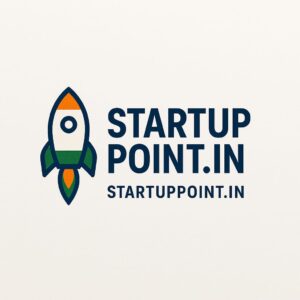
Seoul, South Korea – In a bold move to cement its position as a global tech powerhouse, South Korea’s Ministry of Science and ICT has unveiled an ambitious plan to attract and retain top-tier talent in AI, semiconductors, and defense technologies. The initiative, set to take effect in January 2025, aims to recruit 150 elite professionals while offering competitive salaries, research grants, and fast-track visas to secure the best minds in cutting-edge fields.South Korea has unveiled a sweeping new national strategy to cement its position as a global powerhouse in artificial intelligence (AI) and semiconductors, doubling investments in workforce development and next-gen research. The move comes as nations race to secure supply chains and talent pipelines in these high-stakes sectors.
The government announced a multi-billion-dollar initiative aimed at producing 150,000 skilled professionals in AI, chip design, and advanced manufacturing over the next five years. Key measures include expanded university–industry partnerships, specialized training academies, and global research collaborations.
Semiconductors remain South Korea’s crown jewel—home to giants like Samsung Electronics and SK Hynix, which already dominate global memory chip production. However, with intensifying competition from Taiwan, the U.S., and China, Seoul is shifting focus to system semiconductors, AI chips, and cutting-edge fabrication technologies.
“Talent is the most critical asset in the semiconductor and AI industries,” said Industry Minister Lee Chang-yang. “By doubling our investment in human capital and R&D, South Korea will not only secure supply chain resilience but also lead the global innovation frontier.”
The plan also emphasizes AI integration across industries, from healthcare to smart manufacturing, with government incentives for startups and enterprises leveraging AI-driven solutions. Seoul is setting ambitious targets to grow the domestic AI industry to $50 billion by 2030, while ensuring South Korea becomes a top-three semiconductor hub globally.
Industry experts note that while South Korea has traditionally excelled in hardware, its new emphasis on AI algorithms, cloud computing, and semiconductor design signals a pivot toward a more holistic tech ecosystem. The initiative also aims to attract global talent through revised visa programs and expanded research exchange opportunities.
With the U.S.-China tech rivalry reshaping global supply chains, South Korea’s strategy underscores its intent to remain indispensable in both AI and semiconductors—sectors that will define the future of digital economies.
👉 If executed successfully, Seoul’s talent-first approach could solidify the nation’s role as a critical bridge between Silicon Valley, Europe, and Asia in the next era of technological dominance.
🔍 Key Highlights of South Korea’s Tech Talent Strategy
🚀 “Top-Tier Visa” for Elite Specialists
- Streamlined immigration for experts in AI, robotics, quantum computing, and semiconductors
- Competitive salary packages rivaling Silicon Valley & EU tech hubs
- Generous research funding and tax incentives for foreign professionals
🎯 Focus on Critical Tech Sectors
- AI & Machine Learning – Strengthening R&D in generative AI and autonomous systems
- Semiconductors – Maintaining dominance in chip manufacturing (Samsung, SK Hynix)
- Defense & Aerospace – Boosting innovation in next-gen military tech
📚 STEM Talent Pipeline: From Students to Senior Researchers
- Expanded scholarships for undergrad & PhD students in STEM fields
- “Lifelong support” for mid-career scientists transitioning to industry roles
- Special incentives to increase women in tech, including grants and leadership programs
💡 Why This Matters Now
South Korea is racing against the US, China, and EU in the global tech talent war. With:
✔ Samsung & SK Hynix leading in semiconductors
✔ Naver & Kakao advancing in AI
✔ Hyundai Robotics pushing automation
The country needs top talent to maintain its edge—especially as rivals like TSMC (Taiwan) and NVIDIA (US) dominate key sectors.
🌍 Challenges Ahead
⚠ Brain drain – Korean engineers often move to higher-paying US/European firms
⚠ Aging population – Declining young workforce in STEM fields
⚠ Global competition – China’s aggressive recruitment & US CHIPS Act funding
🔮 What’s Next?
- January 2025 – Revised Special Act on High-Tech Industry Talent Innovation takes effect
- 2026 Goal – Double foreign tech professionals in Korea
- Long-term – Position Korea as the “Silicon Valley of Asia” for AI & hardware innovation
🇰🇷 Will South Korea’s bet on tech talent pay off? With its world-class infrastructure, booming startups, and government backing, the country could soon rival California and Shenzhen as the next big tech hub.
#SouthKoreaTech #AI #Semiconductors #STEM #TechPolicy #GlobalInnovation #FutureOfWork

